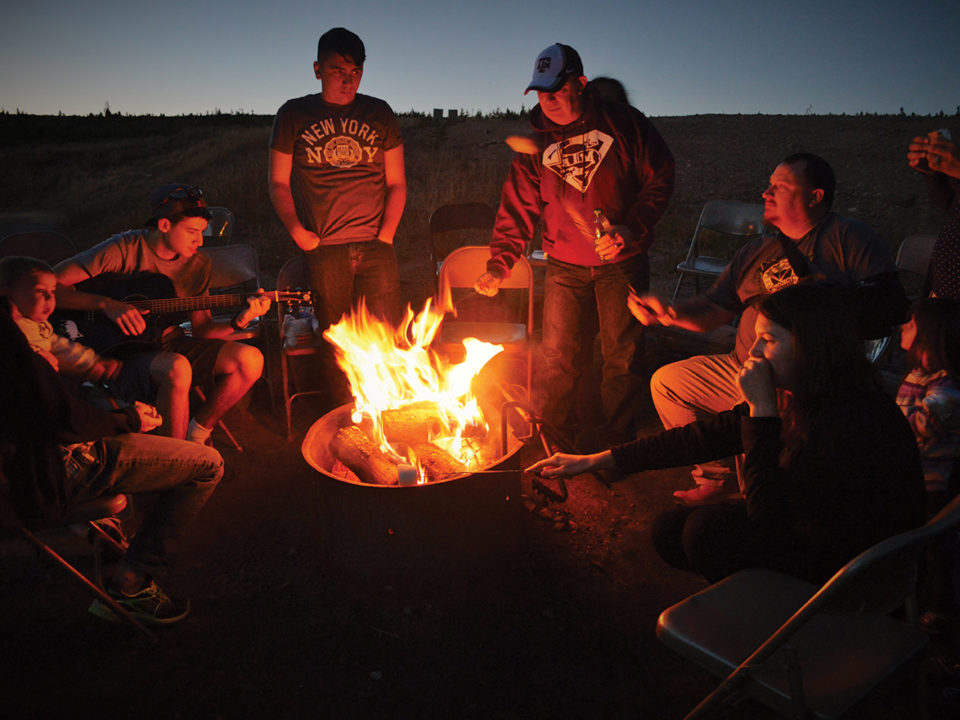As a nurse working at the Salud Family Clinic in Estes Park in the late 1990s, Heather Ehle began to see an increase in veterans coming into the waiting room. Many had what she called “Gulf War illnesses”—unexplained physical problems that occurred after serving in the Gulf War.
According to the U.S. Department of Veteran’s Affairs, Gulf War veterans’ medically unexplained illnesses are prominent, and can include fatigue, headaches, joint pain, indigestion, insomnia, dizziness, respiratory disorders, and memory problems. The symptoms vary widely, and the exact cause is unknown.
“The families were coming in, wondering ‘what was wrong with dad?’” Ehle recalls. When the veterans were given health screenings, none of their levels came back as “normal” by medical standards. The experienced doctor with whom Ehle worked had seen it before. “He said, ‘that’s war’,” remembers Ehle. “It really stuck with me. I thought, who is helping these families?”
Ehle saw how the illnesses were not just affecting the veteran’s health, but also the strength of the family unit. Currently, she says that 20 veterans a day commit suicide, and the divorce rate for military families is triple the divorce rate of civilian families. Ehle believes the best way to support the troops and help change these facts is to support the needs of the entire family.
“That’s when I took what I call a left turn in life,” Ehle says. In 2007, she founded Project Sanctuary, to help strengthen the health of military families.
Project Sanctuary does this through free six-day therapeutic family retreats, held across the country, and locally at YMCA of the Rockies Snow Mountain Ranch in Granby and Winding River Ranch in Grand Lake. At the retreats, families eat communal meals, engage in recreation, and receive services from a professional team that can help with their marriages, anger management, communication, stress, and financial planning. Separate, age-appropriate activities are provided for children and teens while parents are in class.
Following the retreats, Project Sanctuary offers families two years of support based on families’ needs, which could be anything from professional psychotherapy to financial counseling.
Of the more than 4,000 people who have gone through Project Sanctuary’s program, 90 percent are still married. They’ve lost two to suicide, and to honor the memory of one of those participants, the nonprofit started Walton’s Warriors, a peer mentorship program that includes crisis management tools for people with post-traumatic stress disorder (PTSD) and traumatic brain injuries.
“We are about empowerment, not entitlement,” says Ehle. “And so many families are pretty motivated to find some hope.”
How Families Can Help
- Help with dishwashing, meal preparation, and cleaning during family retreats (adults and capable children).
- Serve as a caregiver for babies and toddlers of military families, during retreats (adults).
- Collect board games or other needed supplies, and donate them to Project Sanctuary (adults and children).
- Sponsor one meal for program participants during a retreat, and stay to eat with them (families or large groups).
- Purchase tickets for Project Sanctuary’s gala fundraising event, May 18, 6:30 p.m., at the University of Colorado South Denver campus in Parker (families, large groups, or businesses).





